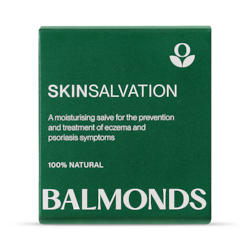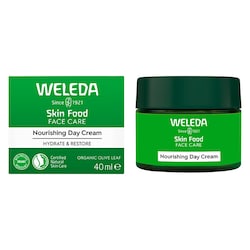20% off £30
Code:EASTER
A guide to iodine

In a nutshell, iodine is a mineral that our bodies need to make thyroid hormones, these hormones keep our metabolisms healthy, click through to learn more.
Summary
1Good sources of iodine
Iodine is naturally found in rocks, seawater and certain types of soil. Luckily it’s also found in more appetising sources like these:...
2How much iodine do I need?
The daily amount of iodine you need changes depending on your age, according to European Food Safety Authority (EFSA) recommendations these are:
3What happens if I don’t get enough iodine?
Without enough iodine, our bodies are not able to make enough thyroid hormones. This means that the thyroid has to work harder to supply these hormone
In a nutshell, iodine is a mineral that our bodies need to make thyroid hormones. These hormones have many important jobs and also help to keep our metabolisms healthy. Although everyone needs iodine, it’s vital for pregnant or breastfeeding women1. This is because it is essential for a child’s growth and development. As our bodies can’t make iodine, it must come from our diets. However, getting too much or too little can be dangerous.
Good sources of iodine
Iodine is naturally found in rocks, seawater and certain types of soil. Luckily it’s also found in more appetising sources like these:
- Dairy products such as milk, cheese or yogurt are the most common source of iodine in the UK.
- Seafood like shellfish and sea fish. This includes prawns, scampi, tuna and cod. Sea vegetables like seaweed and sea kelp.
- Plant-based foods including vegetables, grains and cereals. However, the levels found in plant sources can depend on the amount of iodine found in the soil where the plants were grown.
- Iodised salt which contains iodine, however it should be used in moderation to control salt intake.
How much iodine do I need?
The daily amount of iodine you need changes depending on your age, according to European Food Safety Authority (EFSA) recommendations2 these are:
- Adults - 150 mcg
- Pregnant women - 200 mcg
- Breastfeeding women – 200 mcg
What happens if I don’t get enough iodine?
Without enough iodine, our bodies are not able to make enough thyroid hormones. This means that the thyroid has to work harder to supply these hormones in the blood. Because of this, the thyroid tries to trap iodine in the neck which forms a swelling called a goitre.
During pregnancy, a lack of iodine could affect the baby’s brain causing a lower than average IQ and could make it difficult for the child to read and learn as it grows into an adult. Iodine deficiency is not as common in the UK as in other countries around the globe.
According to the World Health Organisation4 it is the most common cause of brain damage in the world, but is also the easiest to prevent.
What happens if I take too much iodine
Over long periods of time, taking too much iodine could affect how your thyroid gland works. This could eventually lead to weight gain and in some cases thyroid cancer or thyroid gland inflammation.
Severely overindulging on iodine such as taking a large dose of a few grams at a time can even cause stomach pain, nausea, diarrhoea and burning in the mouth or throat. Similar to iodine deficiency, having high levels of iodine can also cause a goitre to form in the neck. Iodine is an important mineral that helps to produce the thyroid hormones and is an essential nutrient for pregnant women.
To get the amount you need, eat dairy products and fish or take up to 0.5mg iodine supplements a day. But keep in mind that balance is key – don’t have too much or too little iodine.
- https://www.ncbi.nlm.nih.gov/pubmed/10828176
- http://www.efsa.europa.eu/en/efsajournal/pub/3660
- http://www.nhs.uk/Conditions/vitamins-minerals/Pages/Iodine.aspx
- http://www.who.int/nutrition/topics/idd/en/



































